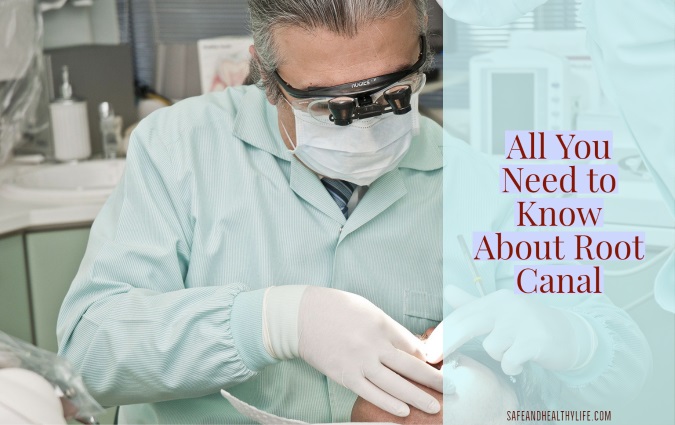
Being a dentist means being ready to perform various procedures that result in the dental repair and oral hygiene maintenance. It can sometimes be challenging, but the goal is to help people.
If you ask a dentist Harrisburg NC, the first thing you need to do is take care of your teeth every day, and if there is any problem, try to find it on time.
In addition to detecting tooth problems on time, it’s essential to use the right procedures. One of them is the root canal procedure.
What Is a Root Canal?
A root canal is a dental procedure that involves drilling a hole to reach the tooth’s soft center. That center or the pulp is full of sensitive nerves and blood vessels that are infected or irritated.
You should know that the crown is a part of the tooth, which you can see when you look at the mirror, and the root is below it attached to a jawbone.
| Read also: How To Help You Through Your Root Canal Treatment |
Why Do You Need The Root Canal Procedure?
Some multiple procedures on the same tooth, tooth injuries, or cracks on the tooth can lead to pulp damage. When your pulp becomes diseased, your tissue dies because it has no way to regenerate.
This is an excellent environment for bacteria that can multiply quickly in your mouth and even cause a cavity.
Having this in mind, you’ll probably make yourself a more outstanding problem sooner than you think if you don’t treat your tooth. One of the consequences is losing your tooth forever, so saving is always the best option.
What Are The Symptoms?
These are some of the signs you need to pay attention to:
- Tooth sensitivity to hot or cold
- Pain when biting or chewing
- Swollen gums
- Face or neck swelling
- Cracked tooth
- Tooth darkening
How Does A Root Canal Treatment Work?

Photo Credit: Unsplash
Maybe the most important thing is finding the right dental office. It’s essential to find it by recommendation if you don’t already have the right one.
Then it would help if you did the x-ray, so your dentist can see your root canal’s shape and position. Now comes the procedure:
1. Anesthesia
A local anesthetic is the first step of this procedure. It will be injected near your painful tooth, in the gums. Just a little pinch and that’s it. Once it starts to work, you’re not going to feel anything.
2. Cleaning a Root Canal
First of all, the dentist will remove everything from your root canal by making a small hole and pumping dead tissue using very small files. Then, he will start by shaping the space for filling.
3. Filling The Root Canal
This step contains filling that hole with a rubber-like material that is firstly biocompatible. That material is called gutta-percha. Basically, it’s a plastic substance from the same-named tree.
That is a kind of thermoplastic filling for the root canals. After this, your tooth is still in its place but dead because all tissues and nerves are removed.
4. Adding a Crown
This needs to be done for your tooth to get back its primary function and protect it. When it’s finally done, you can bite and chew on that tooth like before.
5. Antibiotics
Once your root canal is disinfected and cleaned correctly, your dentist will coat the area with an antibiotic to prevent reinfection.
Does It Hurt?
Having a fear of something unfamiliar is entirely normal. We are all having a fear of something new. Before the procedure, try to get information from different resources.
Ask some of your friends or family about their experience with the same process, but don’t believe everything you hear.
Just try to relax. Before the procedure starts, you’ll get the anesthesia. From that moment, you are not going to feel anything.
When your root canal is done, your dentist will prescribe you some antibiotics and some painkillers like Advil to relieve you for the rest of the day.
| See also: Complications That Can Arise From Root Canal Treatment |
Recovering
After this procedure, it would be best to avoid biting and chewing for the next few hours. This will relieve your pain, and most people who undergo the root canal procedure can go back to their everyday lives.
When you finish with antibiotics and painkillers, it’s just about you how long it will last. Don’t forget that this is just a reminder of how much oral hygiene is important and how fast it can affect your general health.
So, try to brush your teeth after every meal, but at least 2-3 times a day. Change your morning and evening routine by adding dental floss and mouthwash for better teeth cleaning.
About The Author:
Marija is a young journalist on local television and a passionate writer. She is primarily writing blog posts and, in her free time, even poetry and short stories. Also, she is a big fan of books, travel, and the German language.




